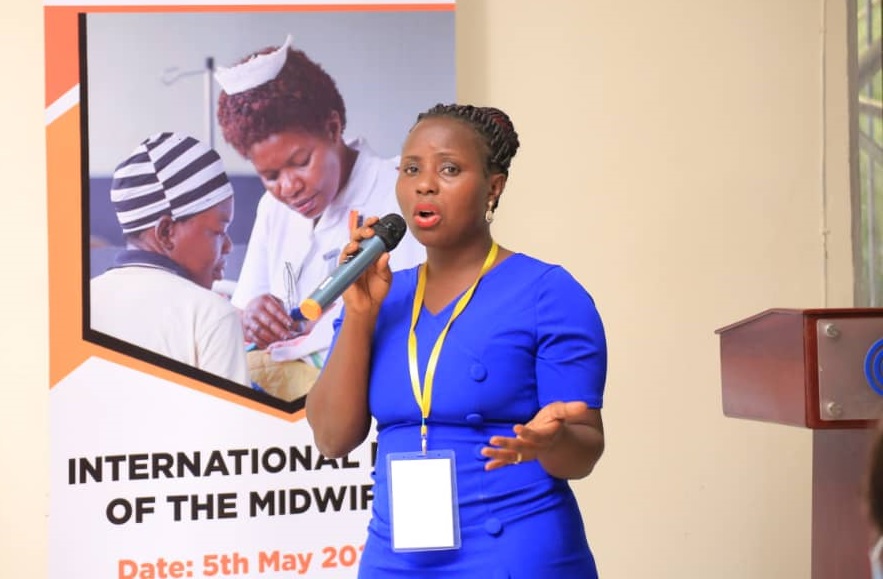As a midwife and Women’s’ Health Specialist, I encounter lots of pregnant women with various concerns. A few years ago, while working in the obstetrics and gynaecology department, in one of the referral hospitals, I encountered Mrs L, a pregnant woman at around 28 weeks of gestation (7 months pregnant), She had come in for her next antenatal care visit (ANC).
During our interaction, I noticed Mrs L was crying and seemed to be in a lot of pain. She complained of continuous pain around the pelvic joints, lower back, hips, thighs and legs which had started at 24 weeks of pregnancy (6 months).
Whereas the pain seemed a common concern for pregnant women, especially in the third trimester, Mrs L’s situation was getting worse, as she could barely stand. Mrs L screamed loudly in pain and even cried when she tried to stand. In fact, she was always supported by friends, who, always assisted her with her activities of daily living. So, I got much concerned with Mrs L’s condition as this turned out unusual.
Mrs L was finally diagnosed with Pelvic girdle pain (PGP), which is a musculoskeletal pain located within the pelvic area between the posterior iliac crest and gluteal folds, with or without leg pain. It can vary from mild to severe. The symptoms can be different for each woman. Some women with PGD may present with pain around their buttocks, groin, hip and lower back. They may also find pain while walking, standing up, squatting, moving their legs apart, pain while turning in bed, and during sex.
In case of nerve involvement, some women may experience numbness, pinpricks, pain, electric-like pains in the lower limbs and more. Although this pain is common, it is not a normal part of pregnancy. It is important for us to note that PGP is a universal problem affecting approximately 40-50% of all pregnant women regardless of their socioeconomic status.
Unfortunately, pregnancy-related Pelvic Girdle Pain (PGP) is not generally regarded as a serious pregnancy complication or life-threatening condition. It is often confused with Lower Back Pain and has been considered a normal part of pregnancy. As a result, it can be overlooked or dismissed by healthcare professionals as they focus on what they consider to be more serious conditions.
Despite this, Pelvic Girdle Pain (PGP) can have negative psychological effects on the mother and her family as she becomes unable to carry out daily tasks and social activities. A lack of awareness of the detriment caused by this condition can result in the poor management of PGP.
Research studies show that the pain from PGP reduces mobility and consequently reduces women’s quality of life. One study found that 7% of pregnant women required the use of crutches and 15% were regularly woken at night from pain when turning over in bed. Research further shows that in extreme cases, women with PGP can end up house-bound, bed-bound and require the use of a wheelchair.
Worse still, PGP can also affect the ability of a pregnant woman to function in the workplace, as a result, there is an increased level of sickness absence in working women with PGP.
Pelvic Girdle Pain (PGP) was previously thought to be caused by the pregnancy hormone relaxin and would therefore resolve itself at birth however more recent research has identified that there is a poor relationship between relaxin and PGP. It is more likely that PGP is of a biomechanical origin which also affects the myofascial structures around the sacroiliac joints and the symphysis.
Other women at risk of developing PGP include those with a history of lower back or pelvic girdle pain, previous injury to the pelvis, the weight, and position of the baby, having PGP in a previous pregnancy, a physically demanding job and being overweight.
Some of the ways for managing pelvic girdle pain (PGP) include; postural changes, adaptations in lifting techniques, wearing supportive shoes, simple home exercises, rest, use of semi-plastic pelvic belts and pillows, massage and relaxation, and acupuncture among others.
Lilian Nuwabaine Luyima is a BSc Nurse & MSN-Midwife & Women’s Health Specialist
Do you have a story or an opinion to share? Email us on: dailyexpressug@gmail.com Or join the Daily Express WhatsApp channel for all the latest news and trends or join the Telegram Channel for the latest updates.


